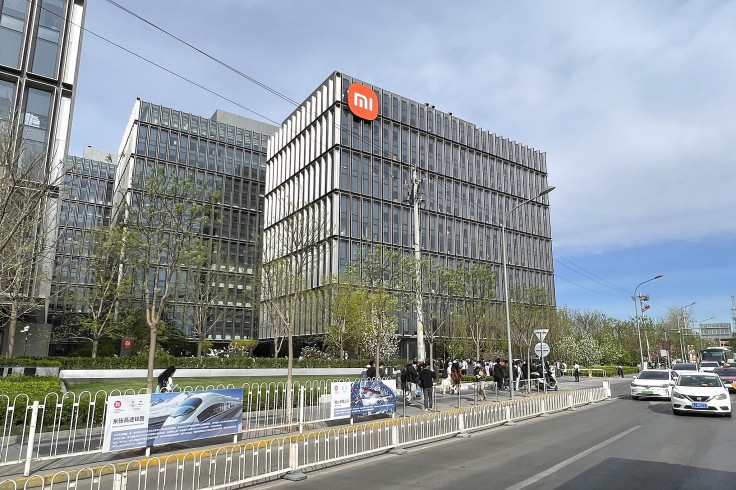Billionaire Xiaomi Founder Unleashes $630 Xiaomi 17 Pro — iPhone 17 Killer or Overhyped?
Xiaomi is pivoting from its limited premium smartphone share to a dominant position in the EV market

The battle for smartphone supremacy has just entered a blistering new phase. Xiaomi's founder, the billionaire visionary Lei Jun, has officially unveiled his company's latest flagship: the Xiaomi 17 Pro, priced from a jaw-dropping $630 (£471.93), taking direct aim at Apple's latest device.
It boasts killer specs and an unbelievably low price tag. The question is no longer if Xiaomi is challenging the giant, but whether this aggressive new flagship can genuinely be the iPhone 17 killer or if it's all just carefully orchestrated hype.
Regardless, this event signals the Chinese firm's growing desire to challenge major American competitors, including Apple and Tesla.
Xiaomi 17 Pro/Pro Max (Yes, they are skipping 16 to match Apple's names)
— Marques Brownlee (@MKBHD) September 25, 2025
2.9" Screen on the camera plateau
50MP cameras
6300/7500mAh batteries
100W charging, 50W wireless charging, 22.5W reverse
Snapdragon 8 Elite Gen 5 (New)
(The retro gaming case is not real lol) pic.twitter.com/OsDxGzbCj6
New Growth Engines: The EV and IoT Strategy
During a livestreamed event on Thursday, Jun revealed the pricing for the Xiaomi 17 series. Mirroring Apple's flagship lineup, the phone will be available as Pro and Pro Max variants, starting at 4,499 yuan ($631.20/£472.99) for the base configuration and reaching 5,999 yuan ($840.81/£629.99) for the premium version.
The Xiaomi device's price point provides a significant competitive edge, coming in over $100 (£74.93) below that of the entry-level iPhone 17, which debuted only a few weeks prior at Apple's yearly showcase.
The move represents Lei's most confrontational approach yet against his enduring rival, Apple, as he has adjusted both Xiaomi's naming conventions and launch schedule specifically to benchmark his offerings against the premier US products.
Smartphone Business: Growth Slowdown Ahead
This assertive strategy culminated in a two-hour virtual showcase, where the CEO personally conducted direct, feature-by-feature comparisons with the iPhone, covering aspects such as battery longevity, screen fidelity, and photographic performance.
The previous day also saw Lei directly challenge Tesla's electric vehicle dominance, explicitly using the Model Y as a benchmark for comparison against Xiaomi's own automobiles. This foray into EVs has proven immensely profitable, with the company seeing its market capitalisation nearly triple in the last year following a triumphant entry into the sector.
$TSLA
— Tsla Chan (@Tslachan) September 25, 2025
Xiaomi CEO Lei Jun said in his annual speech today.
"We bought three Tesla Model Ys for disassembly and research inside Xiaomi earlier this year. What a great vehicle."
"If you don't like Xiaomi YU7, you can choose Model Y." pic.twitter.com/4O44Gew0tn
The CEO once more detailed Xiaomi's sustained, years-long investment in unconventional fields, ranging from electric vehicles to semiconductor design. The 55-year-old business leader has already committed to a $7 billion (£5.24 billion) budget for the development of proprietary mobile processors and has also announced initiatives to build advanced AI models.
This push is part of a strategic campaign to transform Xiaomi's identity beyond its established reputation as a consumer electronics manufacturer. The CEO, who regards electric vehicles as his final major business undertaking, is aiming to fundamentally reshape and upgrade the status of a company that built its initial success on selling cheaper alternatives to the iPhone.
He highlighted the magnitude of this shift, stating that Xiaomi has experienced a 'profound transformation over the past five years and today, a completely new Xiaomi stands firmly in front of a new era'.
The New Front: From Apple Rivalry to Tesla Slayer
The Beijing-based tech giant is vigorously pursuing a greater market share in the premium smartphone category. However, this ambition directly pits them against the US behemoth Apple, which commands a dominant 62% of all global sales for high-end handsets priced at $600 (£449.56) and above.
In contrast, Counterpoint Research indicates that Xiaomi's presence in this lucrative market is currently limited to a single-digit percentage. Fueled by investor confidence in its electric vehicle (EV) expansion, which has propelled its market value to nearly $200 billion (£149.84 billion), Xiaomi has successfully established a significant foothold in the automotive sector.
$TSLA 🇨🇳 Xiaomi SU7 vs. Tesla Model 3 in real world wind resistance test 🔥
— Ming (@tslaming) July 19, 2025
Which one do you think has performed better? 👀 pic.twitter.com/IE1zhbUiTm
This domain is traditionally led by the Shenzhen-based BYD Co. and the US pioneer Tesla, led by Elon Musk. By the launch of its second car, the YU7 SUV, in June 2025, Xiaomi's first model, the SU7 sedan, had been outselling the Tesla Model 3 for several months. This milestone was reached just over a year after the SU7's first deliveries began in the spring of 2024.
EVs to Double Revenue Share, Driving Margin Expansion
According to Bloomberg Intelligence, Steven Tseng and Sean Chen, the EV segment is poised to become Xiaomi's primary driver of sales growth, with its revenue contribution expected to double to roughly 20% this year from 9% in 2024. BI anticipates breakeven for the EV business, driven by a rapid ramp-up at the second factory, and projects that EVs will contribute 10-15% of the company's profit by 2026.
Its Internet of Things business could bolster sales growth of consumer electronics products, though smartphone growth is set to slow. The firm's gross margin could expand to 22.8% this year, we calculate, due to improving economies of scale and product mix.
© Copyright IBTimes 2025. All rights reserved.






















